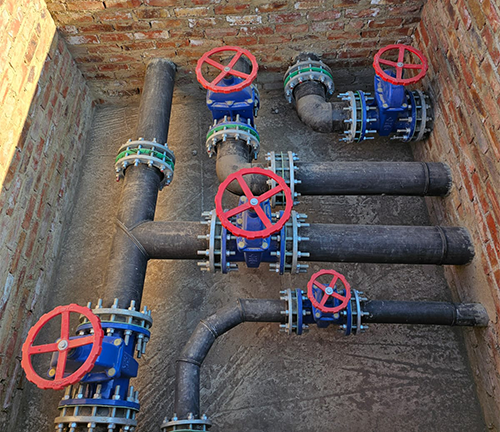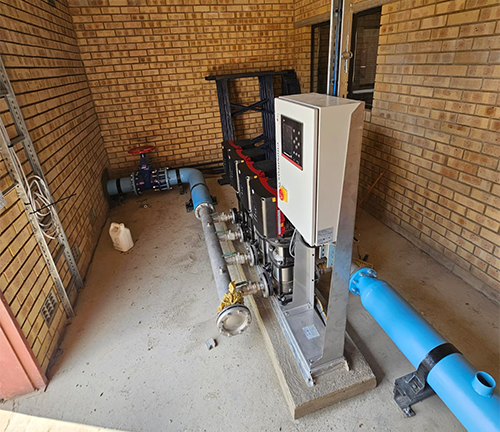Leaky, dilapidated water lines are being replaced at the North-West University (NWU) to reduce water losses and conserve water more effectively. One such rehabilitation project is under way at the Mahikeng Campus.
What was once a neglected water system is now central to the university’s Waterwise Project, as it forms the backbone of a new plan to treat, distribute, and monitor clean water on campus.
Waterwise is a long-term infrastructure overhaul aimed at saving, cleaning and recycling water, and making the university water resilient.
“This is not just about solving today’s problems,” says Pieter van Heerden, technical civil specialist in the Infrastructure Design and Construction Department. “It’s about preparing the university to manage water more intelligently as demand grows and supply becomes less predictable.”
Insulating the campus against external interruptions
The Waterwise Project is focused on ensuring that all students and staff have access to clean, safe drinking water, regardless of external supply interruptions or water quality issues. Rather than relying on scattered point-of-use water filters, the university is building a centralised reticulation and treatment system that will serve all campus areas.
The plan involves constructing a new central treatment plant, upgrading the pumphouse, and installing a smart water monitoring system with metered tracking at key points. “The system will ensure that even if the water we receive from the municipality is compromised, it will still go through treatment before it reaches users,” says Pieter.
The project is being implemented in two phases. The first phase focuses on laying out the new infrastructure: a comprehensive reticulation system, a centralised treatment plant, and an upgraded pumphouse. The second phase will involve installing mechanical treatment solutions to complete the water purification process. Completion is expected by mid-2026.
Part of the initiative includes expanding storage capacity. The campus currently operates with two one-megalitre reservoirs, one at the new student housing precinct and another near the main entrance. A third reservoir will be added and connected to create a three-megalitre water buffer. An additional one-megalitre emergency reservoir will provide further backup. This setup is designed to enhance reliability during peak demand or municipal supply disruptions.
Reducing losses
“The issue isn't only supply, it’s also waste,” says Pieter. “A lot of water is lost through ageing infrastructure. We are replacing dilapidated lines to reduce losses and conserve water more effectively.”
Beyond meeting internal needs, the project is expected to reduce pressure on local municipal water systems. By treating and reusing water within campus boundaries, the NWU indirectly supports surrounding communities grappling with scarcity.
Similar projects are underway at the Potchefstroom and Vanderbijlpark campuses, with the Mahikeng Campus currently the furthest along in the implementation process.
Waterwise is about taking control of how we use water, ensuring it’s safe, efficient and sustainable,” says Pieter. “Universities should lead by example, and this is one way we are doing that.”


Ensuring clean, safe drinking water for all NWU students and staff – no matter the source or supply conditions.
